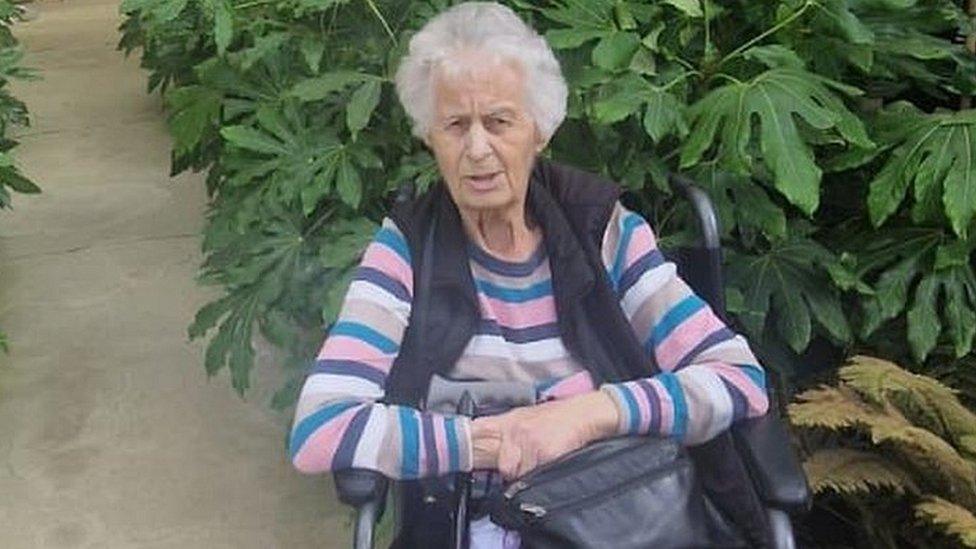999: Grandmother dies at home hours after calling for ambulance
- Published
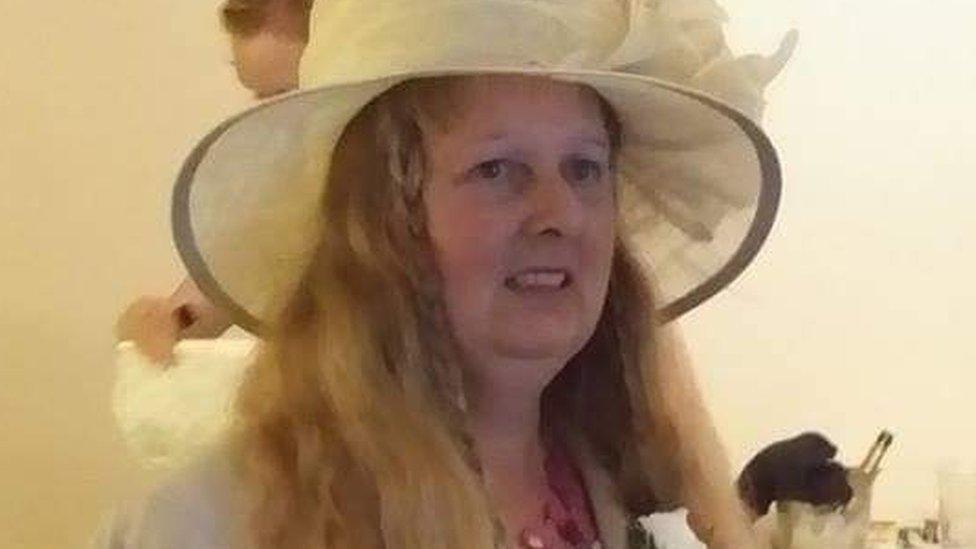
Janet Lyon died from pneumonia
A 67-year-old woman died trying to get through to her GP surgery three hours after calling for an ambulance that was not sent.
Janet Lyon, from Leicestershire, was struggling to breathe on 27 December.
She was told to go to a walk-in centre or her GP by a 999 call handler after it was determined she had an urgent problem that was not life-threatening.
East Midlands Ambulance Service (EMAS) apologised but found the 999 call was handled appropriately.
It added the service was experiencing "high demand" at the time.
Ms Lyon's daughter Katie Keating put in a formal complaint to EMAS and said she was "enraged" at the response.
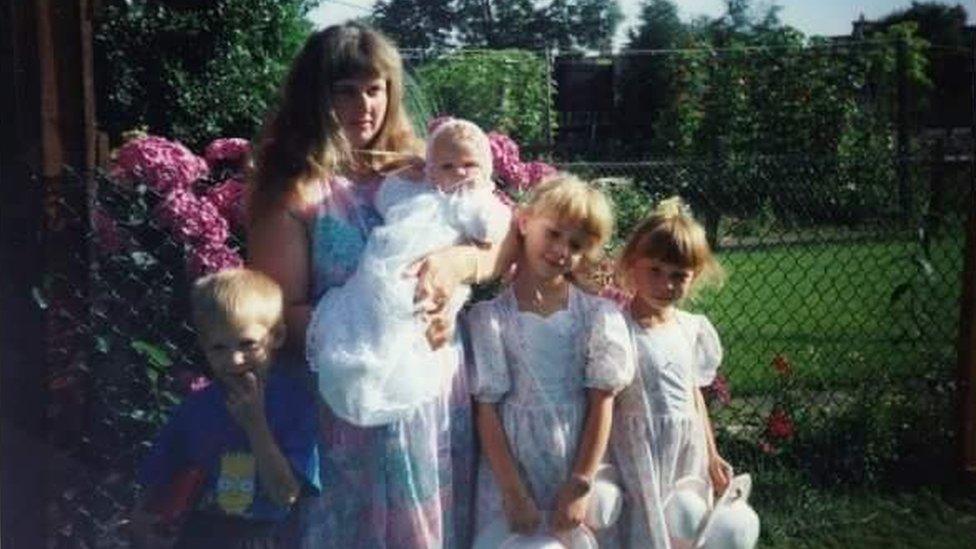
Ms Lyon had four children and 10 grandchildren
Mrs Keating said: "I am totally flabbergasted they have not admitted responsibility.
"That was a completely preventable death. She was not given a chance to have any treatment."
Ms Lyon's death certificate said she died from pneumonia.
Mrs Keating said: "Her lungs were full of fluid and she inwardly drowned in those three hours. She passed out because she could not breathe."
The 39-year-old said her mother - who had type 2 diabetes and asthma - became ill on Boxing Day with the flu.
Ms Lyon, of Coalville, walked into her son Adam's room early the next day saying "I can't breathe - I think I need an ambulance", and he called 999 at 05:20 GMT, said Mrs Keating.
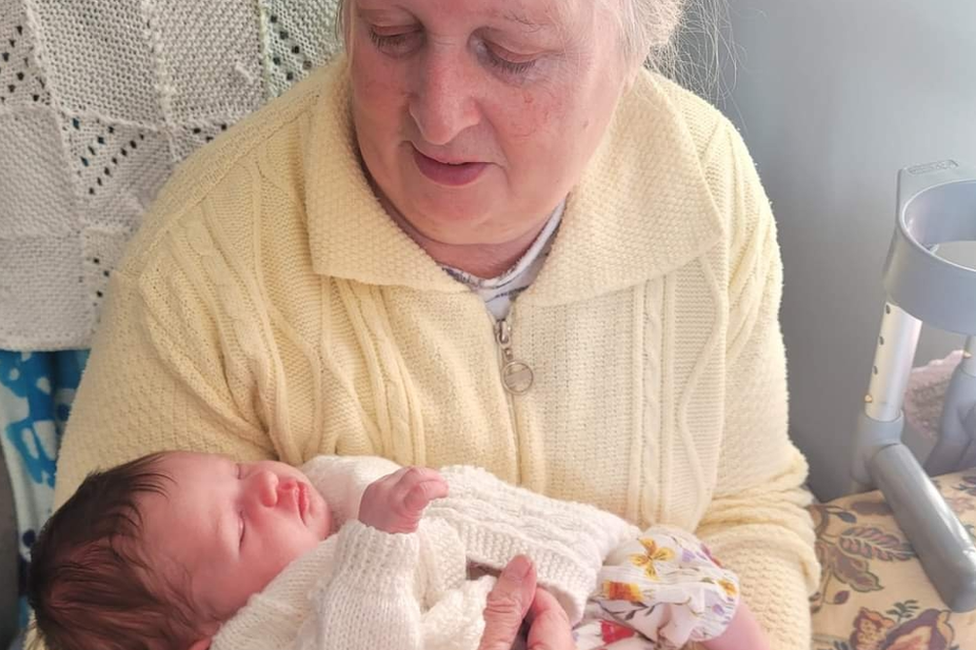
Ms Lyon died with her phone in her hand, her daughter said
The mother of two added: "She died three hours later with her phone in her hand trying to get an appointment with a GP.
"The last thing my brother said to her was 'have you got through to the doctors yet?'"
Mrs Keating, from Nottingham, said her brother would have taken her to A&E, if the call handler had advised this.
She added: "The only thing that would have helped was medical intervention.
"They should have sent an ambulance - she needed oxygen. She was right to call an ambulance - that was her gut instinct."
EMAS said in a letter to the family: "From the information provided during the call, the situation was correctly coded by the EMA [Emergency Medical Advisor] as requiring a category 3 response."
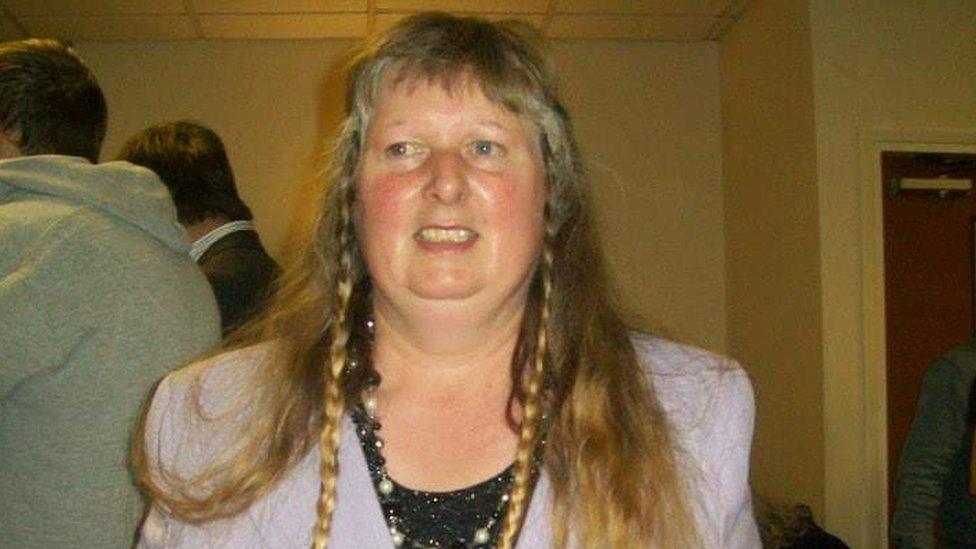
Ms Lyon was of a generation who did not like to make a fuss, her daughter said
The service said it aimed to respond to calls of this nature within 120 minutes, on at least nine times out of 10 occasions.
The letter added: "At the time of the 999 call, our service was experiencing a high demand for emergency responses.
"The caller was correctly advised, via a pre-determined script, that from the information gathered this was not an immediate life-threatening emergency and we would not be sending an emergency ambulance."
The ambulance service said Ms Lyon was advised to make her own way to a walk-in centre, urgent care centre or contact her GP, and only call 999 if her symptoms were to worsen or change.
It added: "I can confirm that the first 999 call was audited and it was established that the outcome reached was safe and appropriate."
The service said it "sincerely apologised for the distress caused... by our advice that an emergency ambulance would not be attending".
When a second call was made at 08:28 to say Ms Lyon was not breathing, it was classed as a "category 1" call and paramedics were there in two minutes.

Follow BBC East Midlands on Facebook, external, on X, external, or on Instagram, external. Send your story ideas to eastmidsnews@bbc.co.uk, external or via WhatsApp, external on 0808 100 2210.
Related topics
- Published14 December 2023
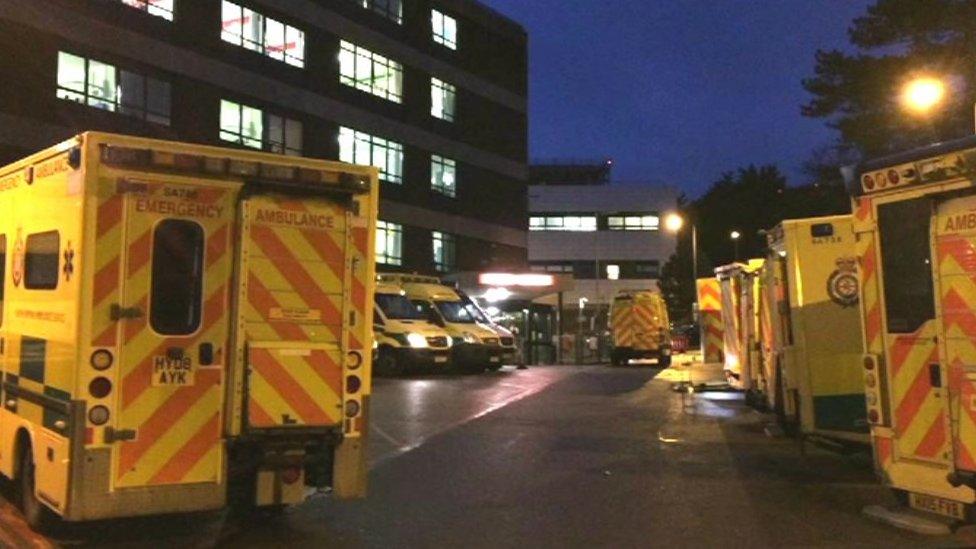
- Published10 December 2023
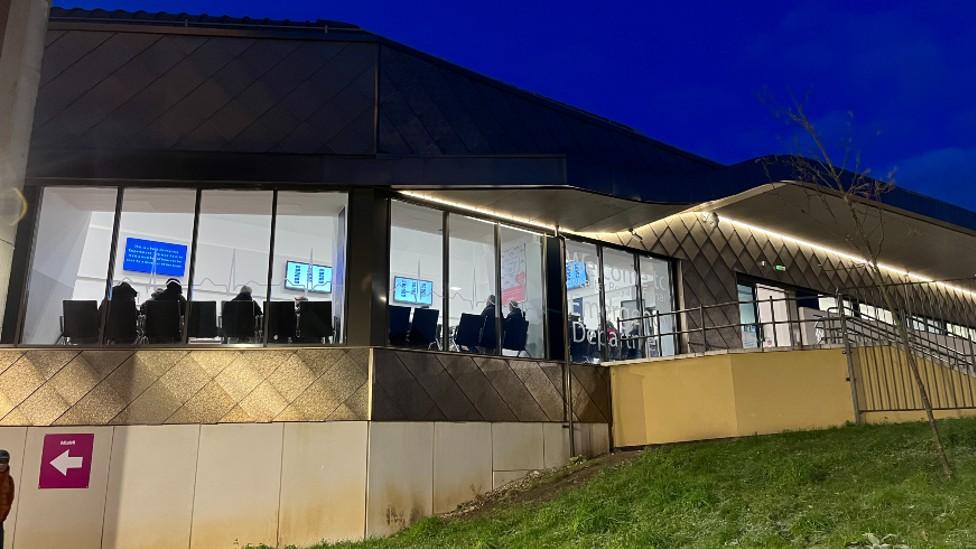
- Published25 September 2023
